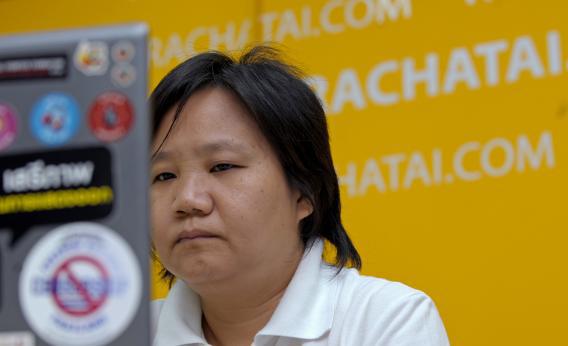Nadim Kobeissi, a Lebanese-born developer currently studying in Montreal, has been toasted by the New York Times for creating an open-source chatroom CryptoCat that allows for encrypted, private chat between up to 10 people.
However, creating a tool to support online freedom of expression has also brought him some unwanted attention.
On Wednesday, while returning from the Human Rights and Technology Conference in Rio De Janeiro, Kobeissi had to change planes in the United States. At the airport, he was detained and had his passport confiscated for an hour. This time, Kobeissi tweeted, he was asked about the technology used in CryptoCat.
Maybe CryptoCat wasn’t the reason Kobeissi was flagged. But he isn’t the only activist who has faced legal trouble after attending an Internet freedom conference.
In late October 2011, Alaa Abd El Fattah, a prominent Egyptian blogger, was arrested as he returned from the Silicon Valley Human Rights Conference. The charge: inciting violence toward the military during riots on Oct. 9, 2011. He was released nearly two months later. That same month, Jacob Appelbaum, a core member of the Tor Project who has also volunteered with Wikileaks, was detained in Iceland after speaking at the Internet and Democratic Change, an event sponsored by the Swedish government.
And just last month, Thai blogger Chiranuch Premchaiporn, aka Jiew, went from a speaking engagement at Google’s Internet at Liberty conference in Washington to a sentencing hearing. She faced up to 20 years in prison because comments posted on her website by readers were deemed insulting to the king. In the end, she was fined the equivalent of $630 and received an eight-month suspended sentence.
It’s likely just a coincidence that these events occurred around conferences concerning Internet freedom. Kobeissi had been detained previously (it was his fourth questioning in three weeks), Appelbaum more than a dozen times. Premchaiporn was awaiting sentencing when she came to Washington. However when these instances occur following events it highlights the reality of the discussion.But the close proximity between legal troubles and conferences sheds light on the risks people around the world face when advocating for human rights.
